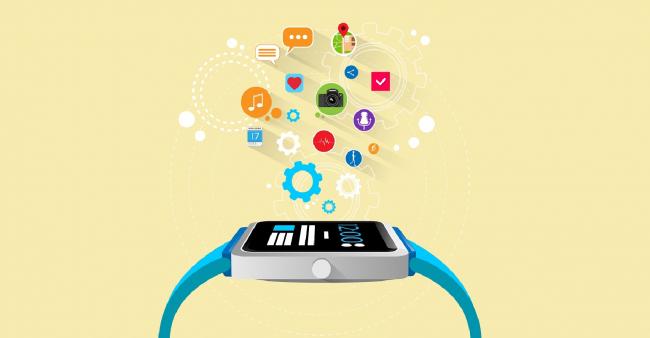Topics
How Wearable Technology Can Help Your Business

Wearable tech is still in its “early adopter” phase. I work in digital advertising, and I can still only spot a handful of people out of my 700 colleagues who sport Google Glass or other tech accessories. But are we all just missing out, willfully ignorant of the personal and career-related benefits?
Only 18 percent of people in the US use wearable tech, but 82 percent say that wearables have enhanced their life in some way.1 Additionally, a study by Rackspace, The Human Cloud at Work, also confirms that professionals who use wearables are 8.5 percent more productive and 3.5 percent more satisfied on the job.
Wearables streamline your digital activity and make it easy to track personal goals, like fitness, for example (cue Nike Fuelband or Fitbit). The personal benefits seem obvious, but there are also reasons businesses—even outside of digital advertising—should promote wearables at work.
1. Avoiding Errors
Streamlined data always keeps businesses ahead of the game, but some manufacturing industries are going a step further. Sensors that monitor fatigue have helped Caterpillar operators avoid accidents, and the company is tapping into additional wearables to keep employees safe and aware.
2. Allocating Resources
Smart glasses never caught on with individual consumers—most consider them too pretentious and expensive. However, there are clear advances for businesses. Google Glass empowers engineers to troubleshoot remotely. Patrick Jackson, a mobile developer and fire safety advocate is building glassware to help firemen navigate dangerous situations in real-time.
3. Streamlining Productivity
Wearables can make life easier for employees of all types. Tesco, the British grocery chain, is using armbands that automatically track the goods that workers are transporting along close to 90 aisles of shelves. These armbands eliminate the need for workers to mark clipboards, and they also give managers an estimated completion time, enhancing order fulfillment processes.
4. Enhancing Wellness Programs
Some companies are tapping into wearable technology to help make their wellness programs a success. Technologies like Lifebeam or Samsung Simband use sensors that attach to an article of clothing and have "the ability to collect, integrate, display and communicate accurate biometrics in real-time." This type of data can empower companies to not only promote healthy lifestyles to their employees—they can also negotiate lower health insurance premiums for the organization as a whole.
All in all, there are a lot of great reasons to own a wearable, and businesses have much to gain should their employees warm up to the technology. Personally, I’ve got my eye on a Tory Burch fitbit. What do you think about the benefits of wearables? Let us know in the comments.

